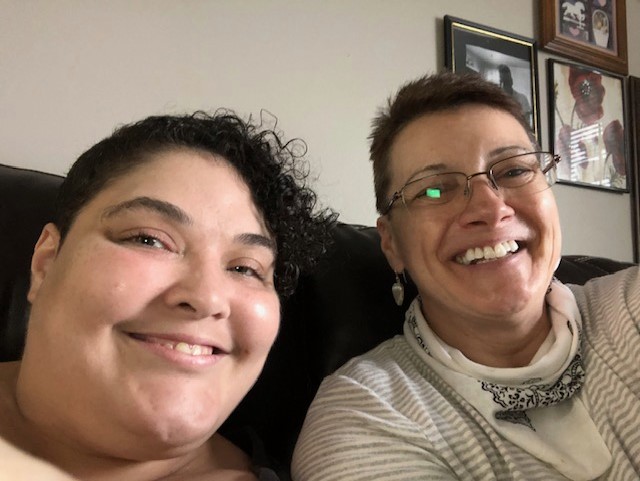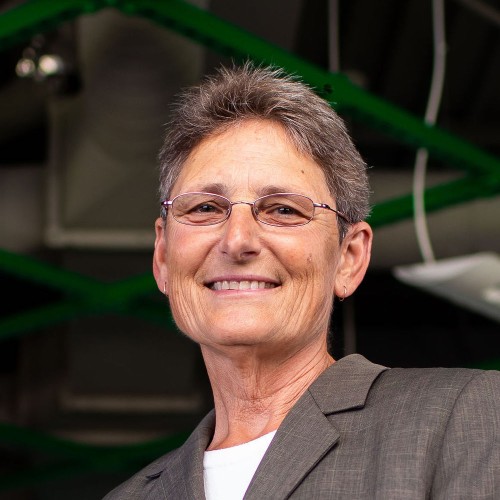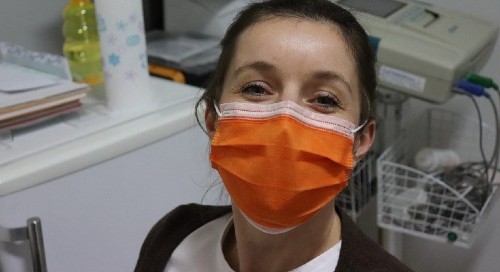The InVisionary
Read this piece in The Morning Call.
In the midst of the COVID-19 pandemic, Pennsylvania’s leaders have had to confront some brutal truths, including our state’s undeniable dependence on low-paid health care workers, direct support professionals and other front-line warriors who protect our most vulnerable residents.
For the past 50 plus years, the state has contracted with private providers to run community-based systems that allow people with intellectual disabilities and autism to live in community settings and regular neighborhoods.

Pennsylvania turned to these community providers after having become too dependent on costly institutions, which also had an abysmal history of abuse and neglect in preceding decades.
Community settings were able to bring people with disabilities out of isolation and into the mainstream. Sadly the system the state created with optimism and hope has turned into a fragile industry because the state, which pays 50% of these programs’ funding (the rest coming from the federal government), has allowed direct support professionals’ salaries to drop to poverty levels.
The system’s flaws are more apparent now than ever, as we battle the pandemic.
Direct support professionals don’t have the opportunity to work from home. They don’t have the opportunity to practice social distancing. As essential and health care workers, they spend hours in a hands-on care setting, sometimes remaining 16 hours at a time. Why? Because there is nobody to relieve them.
The low pay has made it difficult to attract workers to the field. Human service providers struggle every day, and with virtually every shift, to find enough qualified professionals willing to work for such a low wage.
In the midst of the COVID-19 pandemic, this crisis has been especially acute in the intellectual disability and autism community. People supported by providers who live in congregate group homes or their own homes are dependent upon having workers present, just the same as health care workers are needed in hospitals and nursing homes.
The direct support professional workforce has to be present 24 hours a day. These workers are essential to supporting their clients and maintaining stability in their lives.
Fifty years ago, when community programs began, the rates set by the state were sufficient to support a family, allowing community providers to attract well-trained professionals. Over the years, governors and legislators on both sides of the aisle took these programs for granted, failing to make sure they were adequately funded to keep pace with changing times.
Salaries in the field dropped to poverty rates. And as the number of direct support professionals applicants dwindled, the list of consumers waiting for services ballooned to more than 13,000 people — including more than 5,000 in emergency status. It’s hardly surprising that turnover rates in the field today exceed 35%.

During this crisis, it’s been affirming to hear Gov. Tom Wolf, Department of Health Secretary Rachel Levine and Department of Human Services Secretary Teresa Miller refer to workers in our field as “heroes” for risking their lives to support people with disabilities in need. Members of the General Assembly have sent messages of gratitude, but our direct support workers need more: They need to be able to pay their rent and feed their families.
Year after year, families, providers, and direct support professionals have appealed to Pennsylvania’s leaders for help. In good fiscal years, the disability community is told that other programs need help too, so don’t expect help. In lean years, advocates are told there’s just no money in the state treasury.
It is true that the Pennsylvania treasury is also in crisis during this pandemic. The U.S. Congress and the Administration have just enacted enhanced federal Medicaid funding for states, sending billions of dollars to help states operate their budgets as well as health and human service programs. With those dollars, commonwealth providers hope the governor and General Assembly will finally turn their attention to the crisis facing disability programs, accelerated by the COVID-19 pandemic.
It’s heartwarming to be called heroes, but praise doesn’t pay the rent, provide food for workers’ children, or keep the lights on at home. If not now, when?
While elected officials hold us in their thoughts and prayers, revision to the state payment formula is essential: These life-sustaining workers need a living wage and they need it now, before there is no one left to care for those who need it most.
In the midst of the COVID-19 pandemic, Pennsylvania’s leaders have had to confront some brutal truths, including our state’s undeniable dependence on low-paid health care workers, direct support professionals and other front-line warriors who protect our most vulnerable residents.
For the past 50 plus years, the state has contracted with private providers to run community-based systems that allow people with intellectual disabilities and autism to live in community settings and regular neighborhoods.

Pennsylvania turned to these community providers after having become too dependent on costly institutions, which also had an abysmal history of abuse and neglect in preceding decades.
Community settings were able to bring people with disabilities out of isolation and into the mainstream. Sadly the system the state created with optimism and hope has turned into a fragile industry because the state, which pays 50% of these programs’ funding (the rest coming from the federal government), has allowed direct support professionals’ salaries to drop to poverty levels.
The system’s flaws are more apparent now than ever, as we battle the pandemic.
Direct support professionals don’t have the opportunity to work from home. They don’t have the opportunity to practice social distancing. As essential and health care workers, they spend hours in a hands-on care setting, sometimes remaining 16 hours at a time. Why? Because there is nobody to relieve them.
The low pay has made it difficult to attract workers to the field. Human service providers struggle every day, and with virtually every shift, to find enough qualified professionals willing to work for such a low wage.
In the midst of the COVID-19 pandemic, this crisis has been especially acute in the intellectual disability and autism community. People supported by providers who live in congregate group homes or their own homes are dependent upon having workers present, just the same as health care workers are needed in hospitals and nursing homes.
The direct support professional workforce has to be present 24 hours a day. These workers are essential to supporting their clients and maintaining stability in their lives.
Fifty years ago, when community programs began, the rates set by the state were sufficient to support a family, allowing community providers to attract well-trained professionals. Over the years, governors and legislators on both sides of the aisle took these programs for granted, failing to make sure they were adequately funded to keep pace with changing times.
Salaries in the field dropped to poverty rates. And as the number of direct support professionals applicants dwindled, the list of consumers waiting for services ballooned to more than 13,000 people — including more than 5,000 in emergency status. It’s hardly surprising that turnover rates in the field today exceed 35%.

During this crisis, it’s been affirming to hear Gov. Tom Wolf, Department of Health Secretary Rachel Levine and Department of Human Services Secretary Teresa Miller refer to workers in our field as “heroes” for risking their lives to support people with disabilities in need. Members of the General Assembly have sent messages of gratitude, but our direct support workers need more: They need to be able to pay their rent and feed their families.
Year after year, families, providers, and direct support professionals have appealed to Pennsylvania’s leaders for help. In good fiscal years, the disability community is told that other programs need help too, so don’t expect help. In lean years, advocates are told there’s just no money in the state treasury.
It is true that the Pennsylvania treasury is also in crisis during this pandemic. The U.S. Congress and the Administration have just enacted enhanced federal Medicaid funding for states, sending billions of dollars to help states operate their budgets as well as health and human service programs. With those dollars, commonwealth providers hope the governor and General Assembly will finally turn their attention to the crisis facing disability programs, accelerated by the COVID-19 pandemic.
It’s heartwarming to be called heroes, but praise doesn’t pay the rent, provide food for workers’ children, or keep the lights on at home. If not now, when?
While elected officials hold us in their thoughts and prayers, revision to the state payment formula is essential: These life-sustaining workers need a living wage and they need it now, before there is no one left to care for those who need it most.





Comments (0)